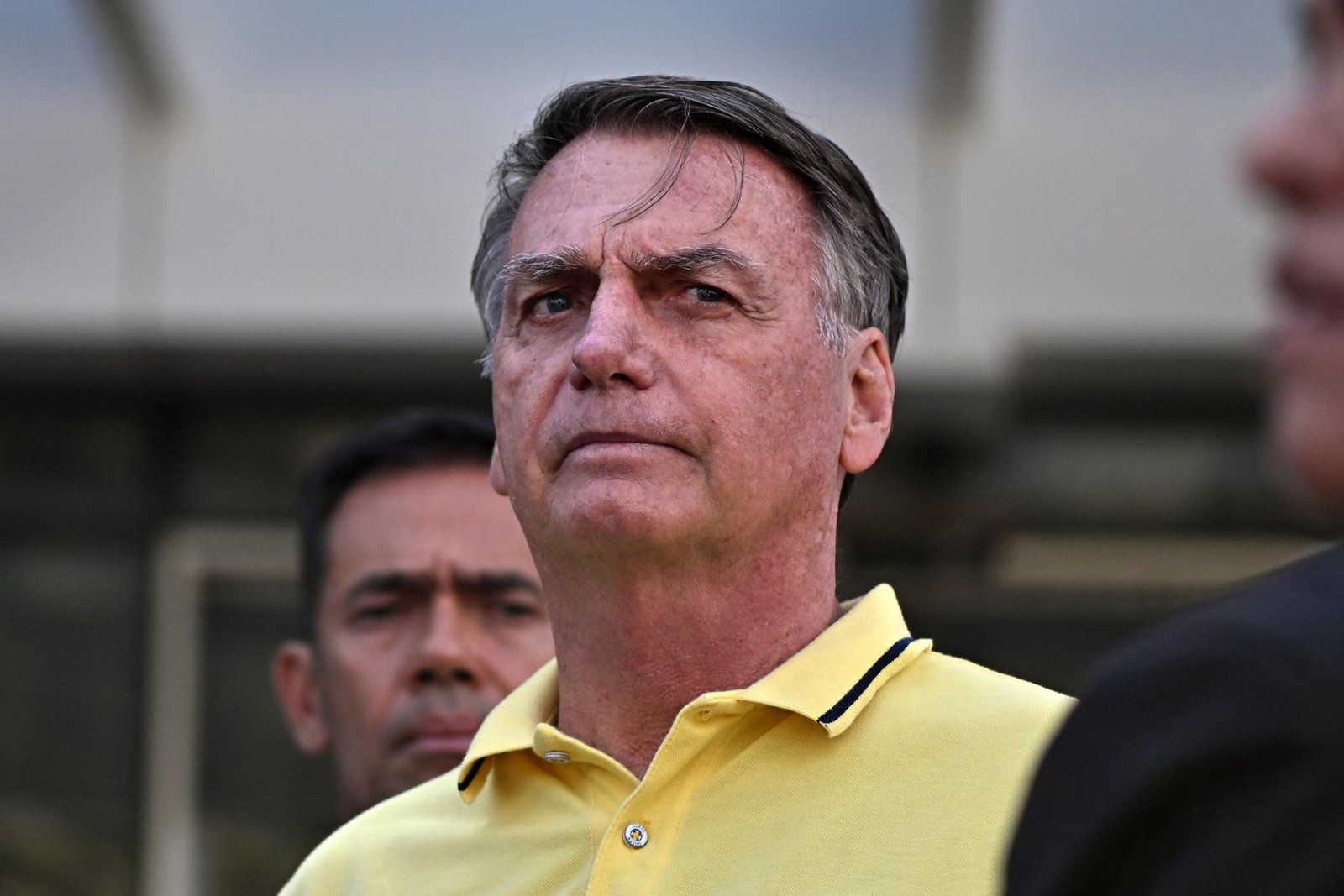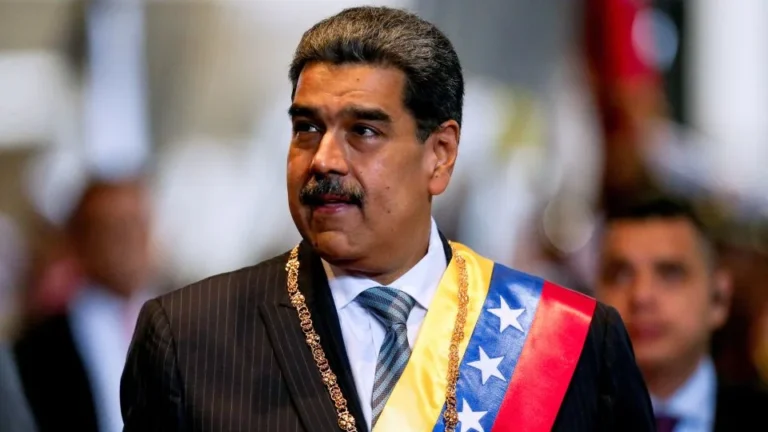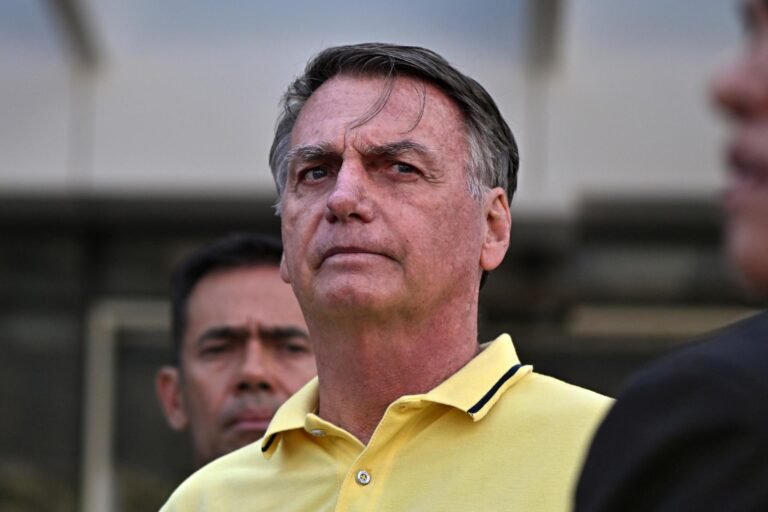
In August 2025, a bombshell revelation shook Brazilian politics: federal police discovered evidence suggesting former President Jair Bolsonaro had drafted a plan to flee to Argentina and seek political asylum. This development, emerging from a 170-page police report, has intensified scrutiny on Bolsonaro as he faces a Supreme Court trial for allegedly plotting a coup after losing the 2022 election. The story of a former leader contemplating escape to a neighboring country reads like a political thriller, but it’s a real-life drama with far-reaching implications for Brazil’s democracy, international relations, and the global far-right movement. Let’s dive into this unfolding saga, exploring its context, consequences, and what it means for Brazil and beyond.
The Context: Bolsonaro’s Legal Troubles
Jair Bolsonaro, Brazil’s polarizing ex-president, has been under intense legal pressure since losing the 2022 election to Luiz Inácio Lula da Silva. Accused of orchestrating a coup to cling to power, he faces a trial that could lead to over 40 years in prison. The discovery of an asylum request on his phone has added fuel to an already fiery political landscape.
A Coup Allegation That Won’t Go Away
Bolsonaro’s trial centers on claims that he led efforts to undermine the 2022 election results, culminating in the January 8, 2023, riots when his supporters stormed Congress, the Supreme Court, and the Presidential Palace. The 170-page police report alleges he had “full knowledge” of plans to destabilize Brazil’s democracy, including a chilling plot to assassinate Lula and Supreme Court Justice Alexandre de Moraes.
House Arrest and a Seized Passport
Since early August 2025, Bolsonaro has been under house arrest in Brasília, wearing an ankle monitor and barred from social media or contact with allies. His passport was seized in February 2024, signaling authorities’ fears that he might flee. The asylum draft, dated February 10, 2024, was saved just days after this seizure, suggesting a desperate bid to escape mounting legal pressure.
The Asylum Plan: What We Know
The Brazilian federal police’s discovery of a 33-page draft asylum request addressed to Argentine President Javier Milei has sent shockwaves through the region. Found on Bolsonaro’s phone, the document paints a picture of a leader who believed he was facing political persecution and feared for his life.
The Letter to Milei
In the draft, Bolsonaro wrote, “I, Jair Messias Bolsonaro, request political asylum from Your Excellency in the Republic of Argentina, under an urgent regime, as I find myself in a situation of political persecution in Brazil and fear for my life.” The document, saved two days after police raided his home, was never confirmed to have been sent, but its existence has raised serious questions about his intentions.
Why Argentina?
Argentina, under Milei’s far-right leadership, seemed a natural choice for Bolsonaro. Both leaders share ideological ties, having bonded over their admiration for Donald Trump and their disdain for leftist policies. Bolsonaro attended Milei’s inauguration in December 2023, while Lula notably did not, highlighting the frosty relations between Brazil’s current president and Argentina’s leader.
Table: Key Figures in Bolsonaro’s Asylum Drama
| Name | Role | Connection to Bolsonaro |
|---|---|---|
| Jair Bolsonaro | Former Brazilian President | Accused of coup plot, drafted asylum request |
| Eduardo Bolsonaro | Bolsonaro’s son, ex-congressman | Alleged to have lobbied Trump for support |
| Javier Milei | Argentine President | Potential asylum grantor, ideological ally |
| Alexandre de Moraes | Supreme Court Justice | Oversees Bolsonaro’s trial, targeted by Trump sanctions |
| Luiz Inácio Lula da Silva | Current Brazilian President | Bolsonaro’s rival, target of alleged coup |
The Hungarian Embassy Incident: A Pattern of Flight?
The Argentina asylum plan wasn’t Bolsonaro’s first apparent attempt to seek refuge. In February 2024, he spent two nights at the Hungarian Embassy in Brasília, fueling speculation that he sought asylum from another right-wing ally, Prime Minister Viktor Orban. This earlier incident, combined with the Argentina draft, paints a picture of a man exploring multiple escape routes.
Two Nights in Hungary’s Embassy
Security footage revealed by The New York Times showed Bolsonaro at the Hungarian Embassy just days after his passport was seized. While he later refused to explain his stay, the timing—shortly after the Argentina asylum draft was saved—suggests a pattern of seeking safe havens abroad.
Why Embassies?
Embassies offer diplomatic immunity, making them attractive for someone facing arrest. Bolsonaro’s moves to Hungary’s embassy and his draft to Milei indicate he was testing waters with allies who share his populist, anti-establishment views. The police report notes these actions as evidence of a “proven risk of flight.”
Obstruction of Justice: Bolsonaro and His Son
The asylum plan is part of a broader accusation that Bolsonaro and his son, Eduardo, obstructed justice by attempting to influence his trial. Eduardo, who moved to the U.S. in February 2025, has been lobbying the Trump administration to pressure Brazil’s judiciary, with some success.
Eduardo’s Role in the U.S.
Eduardo Bolsonaro, a former congressman, has been vocal in Washington, D.C., seeking Trump’s intervention. In July 2025, Trump imposed 50% tariffs on Brazilian exports, citing Bolsonaro’s trial as a “witch hunt,” and sanctioned eight Brazilian Supreme Court justices, including Moraes. Messages between father and son reveal Eduardo urging Bolsonaro to “act responsibly” to maintain Trump’s support.
Violating House Arrest Rules
Police allege Bolsonaro ignored court orders by communicating with allies and spreading content to undermine Brazil’s democratic institutions. Screenshots and voice messages show him discussing strategies to sway public opinion, including praising Trump to influence his trial’s outcome. These actions have led to charges of “coercion in the judicial process” and “abolition of the democratic law,” carrying a potential 12-year sentence.
Pros and Cons of Bolsonaro’s Asylum Strategy
Pros:
- Potential escape from prosecution in Brazil.
- Alignment with ideologically similar leaders like Milei and Orban.
- Could rally international support from the global far-right.
Cons:
- Risks further alienating Brazilian authorities and public opinion.
- Asylum requests could fail if host countries prioritize diplomatic relations with Brazil.
- Legal repercussions for violating house arrest conditions.
The Human Side: A Family Under Pressure
Behind the headlines is a family grappling with uncertainty. Bolsonaro, now 70, faces the prospect of decades in prison, while his son Eduardo navigates a high-stakes lobbying effort abroad. Their strained relationship, revealed in expletive-laden WhatsApp exchanges, adds a layer of personal drama to the political saga.
A Father-Son Rift
In one heated exchange, Eduardo responded to his father’s criticism with, “Go and fuck yourself you fucking ingrate!” This raw moment, uncovered in the police report, shows the toll of legal and political pressures on the Bolsonaro family. Eduardo’s plea for his father to “act responsibly” underscores the stakes of their transatlantic efforts.
Supporters Rally, Critics Condemn
Outside Bolsonaro’s Brasília home, supporters draped in Brazilian and American flags have protested, demanding amnesty and decrying Justice Moraes. On X, posts like @BiazitaGomes highlight the asylum draft as evidence of Bolsonaro’s flight risk, while others, like @MarioNawfal, add a humorous twist, joking about him “jumping a neighbor’s wall” to escape. These reactions reflect Brazil’s polarized political climate.
International Ramifications: Trump, Milei, and Global Politics
Bolsonaro’s case has reverberated beyond Brazil, drawing in international players like Donald Trump and Javier Milei. The interplay of right-wing alliances and geopolitical maneuvers has turned a domestic legal battle into a global spectacle.
Trump’s Intervention
Trump’s tariffs and sanctions on Brazilian justices signal a bold move to support Bolsonaro, a key ally. Eduardo’s messages reveal a strategic effort to leverage Trump’s influence, with phrases like “the most powerful man in the world is on your side.” However, internal White House dissent, as noted by Eduardo, suggests not all U.S. officials back this approach.
Milei’s Dilemma
Milei, a libertarian admirer of Bolsonaro, faces a delicate situation. Granting asylum could strain Argentina’s relations with Brazil, especially given Lula’s frosty stance toward Milei. The Argentine government has stated it never received an asylum request, leaving open questions about whether Bolsonaro’s draft was a serious plan or a contingency.
Comparison: Bolsonaro’s Case vs. Other Political Asylum Cases
| Aspect | Bolsonaro’s Case | Other Notable Cases |
|---|---|---|
| Country Sought | Argentina | Various (e.g., Edward Snowden in Russia) |
| Reason for Asylum | Alleged political persecution | Varies (e.g., espionage, dissent) |
| Legal Status | Under house arrest, facing trial | Varies (e.g., fugitive, exile) |
| International Impact | U.S. tariffs, sanctions on Brazil | Often limited to diplomatic tensions |
| Outcome | Asylum request not sent (as of 2025) | Varies (e.g., granted, denied) |
People Also Ask (PAA)
Below are real questions from Google’s “People Also Ask” section, answered to provide clarity and value.
Why did Bolsonaro want to seek asylum in Argentina?
Bolsonaro drafted an asylum request to Argentina’s President Javier Milei in February 2024, claiming political persecution and fear for his life amid a coup investigation. The draft, found on his phone, was saved days after his passport was seized, suggesting he sought to evade prosecution.
What are the charges against Jair Bolsonaro?
Bolsonaro faces five charges related to an alleged 2022 coup plot, including leading an armed criminal organization, attempting a coup, and damaging federal property. He and his son Eduardo also face obstruction of justice charges for allegedly interfering with his trial.
Did Bolsonaro actually send the asylum request to Argentina?
It’s unclear if the asylum request was sent. The Argentine government stated it received no such request, and the draft was found on Bolsonaro’s phone, indicating it may have been a contingency plan rather than an executed action.
How has Trump supported Bolsonaro’s case?
Trump imposed 50% tariffs on Brazilian exports in July 2025, citing Bolsonaro’s trial as a “witch hunt,” and sanctioned eight Brazilian Supreme Court justices, including Alexandre de Moraes. Eduardo Bolsonaro’s lobbying in the U.S. has fueled these actions.
The Legal Road Ahead: Trial and Consequences
Bolsonaro’s trial, set to conclude between September 2 and 12, 2025, will determine his fate. If convicted, he faces up to 40 years in prison for the coup charges, with additional penalties possible for obstruction of justice. His legal team denies the allegations, calling them politically motivated.
Supreme Court Showdown
Justice Alexandre de Moraes, overseeing the trial, has given Bolsonaro’s lawyers 48 hours to explain the asylum draft and violations of house arrest rules. The court’s decision will hinge on evidence like the asylum request, messages with Eduardo, and testimony from military commanders who allegedly rejected Bolsonaro’s coup plans.
Potential Outcomes
A conviction could bar Bolsonaro from politics and cement his status as a pariah in Brazil. However, his international allies, including Trump and Milei, may continue to rally support, potentially escalating diplomatic tensions. An acquittal, though unlikely given the evidence, would galvanize his base and reshape Brazil’s political landscape.
What Can Readers Do? Tools and Resources
For those captivated by this political drama, here are ways to stay informed and engaged:
- Follow Trusted News Outlets: Check The New York Times, Reuters, or The Guardian for updates on Bolsonaro’s trial and international reactions.
- Explore Advocacy Groups: Organizations like Human Rights Watch monitor political persecution and judicial independence in Brazil.
- Engage on X: Follow hashtags like #BolsonaroTrial or accounts like @AP for real-time updates, but verify information with primary sources.
FAQ Section
Q: What evidence supports Bolsonaro’s asylum plan?
A: Police found a 33-page draft asylum request on Bolsonaro’s phone, dated February 10, 2024, addressed to Javier Milei. It claimed political persecution and was saved days after his passport was seized.
Q: Why is Eduardo Bolsonaro involved in the case?
A: Eduardo, Bolsonaro’s son, is accused of obstruction of justice for lobbying Trump’s administration to pressure Brazil’s judiciary. Messages show him urging his father to leverage Trump’s support.
Q: How has Brazil’s Supreme Court responded to the asylum allegations?
A: Justice Alexandre de Moraes gave Bolsonaro’s lawyers 48 hours to explain the asylum draft and house arrest violations. The court views these as evidence of a flight risk.
Q: Could Bolsonaro face jail time?
A: Yes, if convicted of coup-related charges, Bolsonaro faces up to 40 years in prison. Obstruction of justice charges could add up to 12 years.
Q: What role does Javier Milei play in this?
A: Milei, Argentina’s president, was the intended recipient of Bolsonaro’s asylum request. Their shared far-right ideology made Argentina a potential refuge, though no request was confirmed sent.
Conclusion: A Test for Brazil’s Democracy
Jair Bolsonaro’s alleged plan to flee to Argentina is more than a personal bid for freedom—it’s a flashpoint in Brazil’s struggle to balance justice and political polarization. As his trial looms, the world watches to see if Brazil’s institutions can withstand the pressures of a divisive figure and his international allies. From a draft letter to Milei to heated exchanges with his son, this saga reveals the human and political stakes of a nation at a crossroads. Stay tuned to trusted sources like The Associated Press or BBC News for updates, and consider supporting groups advocating for judicial independence to ensure stories like this shape a stronger democracy.
Sources: The Associated Press, The New York Times, The Guardian, Reuters, BBC News, Al Jazeera, CNN, Euronews, Financial Times, ABC News, The Hindu, Buenos Aires Times, DW, Times of India, News18, PBS News




